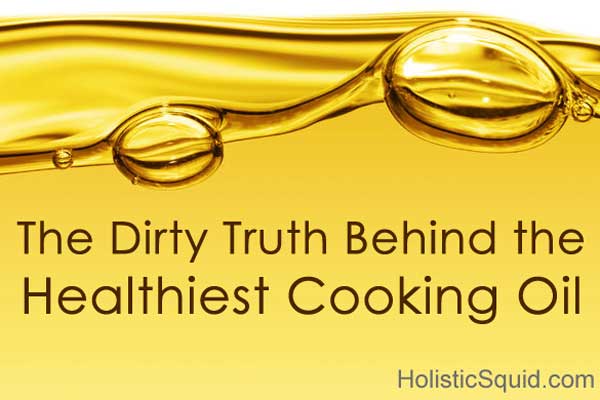
Figuring out the “rules” of healthy eating can be downright confusing – and nothing more so than the conflicting misinformation about fats. In this post, Erin reveals the shocking truth about the world's “healthiest cooking oil” – canola. Even if you've long given up this golden liquid, you're not going to want to miss the video below. Start at about 1:30 for the good – or shall I say extra repulsive – stuff. ~Emily
For the past few decades, canola oil has been touted as the healthiest cooking oil. It has been given the Generally Recognized as Safe label by the FDA, and manufacturers have tried their best to have this oil considered a health food.
From the FDA’s website:
“Canola oil… may reduce the risk of coronary heart disease due to its unsaturated fat content.”
Another study, conducted in 1989, deduced that canola oil is the only cooking oil that meets the proper ratios of saturated, monounsaturated, and polyunsaturated fats.
Pretty cut and dried, right?
Not so fast – let’s investigate.
Where does canola oil come from?
Canola oil is derived from rapeseed, which has high levels of erucic acid which has been associated with causing heart issues. Plant-breeders were able to make a hybridized version of rapeseed called LEAR oil (Low Erucic Acid Rapeseed). “Rape oil” or “LEAR oil” isn't a very good name for marketing, and since Canada was one of the main suppliers of rapeseed oil at the time, the name canola, from “Canadian oil,” was born.
In the mid 80's, saturated fats were getting (and still are getting) a bad reputation for clogging your arteries, and PUFAs (Poly Unsaturated Fats) had growing evidence of causing cancer. All that was left for the food companies to make were monounsaturated fats, which is when olive oil became popular.
Food companies needed a cheaper monounsaturated fat to increase profits. Cue canola oil. It's cheap, full of monounsaturated fats, omega 3s and 6s, and low in saturated fat. Canola oil seemed to be the perfect answer.
However, canola oil still smelled awful, looked dirty, and tasted worse. But why would that stop an enterprising food manufacturer? Apparently anything can be turned into food.
How canola oil is made
The process of making canola oil palatable and marketable is a lengthy one involving many questionable chemicals – seen here in this video… even this video showing the rotten refining process still dubs it one of the healthiest cooking oils.
Like all modern vegetable oils, canola oil goes through the process of caustic refining, bleaching and degumming — all of which involve high temperatures or chemicals of questionable safety. And because canola oil is high in omega-3 fatty acids, which easily become rancid and foul-smelling when subjected to oxygen and high temperatures, it must be deodorized. The standard deodorization process removes a large portion of the omega-3 fatty acids by turning them into trans fatty acids. (source)
Why canola oil is the single worst food development
- Bleach and lye (sodium hydroxide) are used in the refining process. A steam injection heating process is also used, which further breaks down any nutrients.
- Canola oil is claimed to be heart-healthy because of its low saturated fat, high monounsaturated fat, and good ratio of omega-3 and omega-6 fatty acids. However, omega-3 and omega-6 fatty acids are fragile and easily become oxidized and rancid. (source)
- No long-term study has shown the effects of erucic acid or glucosinolates on humans. However, studies have shown that animals fed canola oil developed lesions on their hearts, vitamin E deficiency, bad platelet changes, and growth retardation. Saturated fat mitigated these effects. (source)
In fact, many of the studies from the past several decades that “prove” fat causes heart attacks are from analyzing cultures that consume high amounts of canola oil and other highly manufactured vegetable oils, which are denatured, chemical filled, and oxidized.
What about organic and expeller-pressed canola oil?
Expeller-pressed means the food manufacturer uses powerful machines to press the seeds until the oil comes out. It’s a better process than normal canola oil because it doesn’t use chemical solvents during extraction. However, the U.S. does not regulate how hot the oil can be during this process even (if it's labeled cold-pressed).
Organic means the plant hasn’t been genetically modified and no pesticides were used in the process. Clearly, that’s a good thing, but is the canola oil healthy now?
Despite being organic and expeller-pressed, canola oil is still unpalatable and has to go through the refining process explained above. In the end, it's really not that much better than regular ol' canola oil.
So what IS the healthiest cooking oil?
The simplest rule of thumb is to choose an oil that doesn’t require heavy processing to extract.
Here is a good list of other available healthy cooking oils out there:
Coconut oil – Our favorite option and one of the best sources of natural saturated fat out there. Coconut oil is considered by many to be a superfood. It's perfect for deep frying and is often used externally in just about any use you can think of.
Palm oil – Similar to coconut oil, palm oil has a high smoke point and lots of saturated fats. Use for all types of frying. Unfortunately, most companies that produce palm oil do so through major deforestation – be sure to grab a brand that's found on RSPO's (Roundtable of Sustainable Palm Oil) website or has their trademark on the product.
Butter – A natural source of fat that provides high amounts of vitamins A, D, and K2, especially when it comes from grass-fed cows. Use butter for pan frying but not for deep frying.
Ghee – This is butter, but with the solids cooked out of it, making it an alternative for deep frying.
Tallow/Lard – Tallow comes from beef fat and lard comes from pig fat, making them great natural sources of fat. They can be used for any type of frying, but beware the beef/pork flavor – in other words, don't add it to your brownies in place of canola oil or butter.
Olive oil – Low in PUFAs and helpful in fighting inflammation, good quality olive oil is a smart alternative to canola because the processing is natural and simple. Avoid cooking with it – use it on salads or for dipping your bread in.
Avocado oil – You've probably sensing a theme. If it comes from a natural source and didn't require chemical processing, the oil is probably healthy for you! With a high smoke point and a mild flavor, you can use this stuff for anything from salad dressing to deep frying.
Do you think organic, expeller-pressed canola oil is healthy? Would you try it out, or stay away?



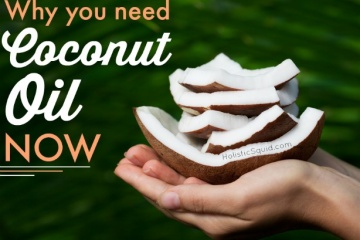
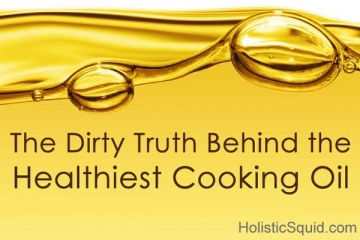

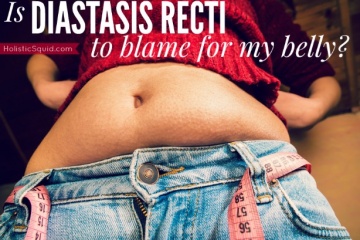
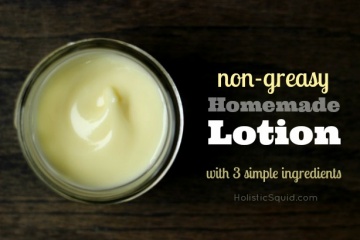

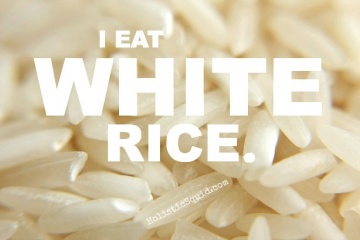

So is it really realistic to think you can always avoid it? My family already rarely eats out due to gmo’s and cooking oils. I fix 95% of all of our food at home for a family of 6. Sometimes Momma needs a break. The few places I will go probably use Olive Oil and Canola Oil or a combination of both. I try to stick to salads but I’m betting event he hummus has it and yes, I’ve been know to eat off of Whole Foods bar and I note the Canola Oil and I dislike it but when you are starving and you are trying to do the best the majority of the time what’s a person to do?
I even believe my step mom cooks with Canola Oil and I still eat with my family when they cook. I’m not happy about it band I’ve tried to explain to them but they are still using old school information and are not really up for the change. Butter, Bacon Fat, and animals fats are still scarey to them due to all the marketing.
No, it’s definitely not realistic to avoid canola oil unfortunately. We don’t have any in our house, but like you said, if you eat out or go to a friend’s house it’s unavoidable. I just do the best I can and don’t stress about the rest.
Thanks for this informative article! What are your thoughts on “light tasting olive oil?” I use that for salad dressings especially since I don’t want to taste that “olive oil taste.” Thanks!
Racquel
I don’t know much about olive oil because I’m not a huge fan of the taste like you said. I do know that the light olive oil is more refined which usually isn’t good. I haven’t tried it, but a lot of people say that they like avocado oil because it’s very similar to olive oil just a lot milder in flavor. I haven’t taken the time to find a good brand or spend the money cause it’s a little more expensive.
Never thought Canola oil is so bad. Thanks for this post.
I am overwhelmed to see that Coconut oils is one of the safest to use. We normally use Coconut oil for cooking.
Also it is one of the most economical as well amongst the rest.
Stay away from Canola.
Yes stay away from Canola oil! I call it the “oil of death” at our house lol. Coconut oil is waaaay more healthy for you to cook with and 99% of the time I don’t even notice a coconuty taste in my food.
OOPS! Thanks for letting us know. 🙂
What is the status on cooking with nut and seed oils? I sometimes use grape seed oil, sunflower seed oil, or safflower oil if I need an oil that doesn’t solidify at room temp, but I don’t want a strong tasting oil like olive oil.
if you read up on safflowers, sunflower and grape seed they are almost as bad as canola…certainly safflower is. Same wit corn oil. Find a good resource for avocado oil if you need it to be vegan for cooking. I use mostly grass fed tallow, ghee, and bacon fat for most of my cooking…have done so for three years, and never felt or been healthier. I found that the costco near my house started carrying avocado oil at a great price, and I also get some from a local farmers market. I make my own mayonnaise and use half olive and half avocado oil, since, I agree with you, a lot of olive oil is too heavy in flavor, esp. for something light like mayonnaise. Last night we fried fish and chips, and I used responsably sustainable palm shortening. good luck, it’s a learning and tasting process.
This is a great article. I’ve done a lot of research on Canola. My question is, what are your thoughts on the bio diesel aspect of the rapeseed plant? Do you think this matters in how it affects our bodies? I’ve had people tell me that through certain processes this type of property can be isolated and not have an effect directly related. I do not use canola but I’d love to hear your take on this. 😉
I don’t understand why peanut oil is not being encourage more! My mother and MIL were life long devotees of lard and peanut oil. It’s delicious, not like the yuck canola and veggie shortening! By the way my mother was 96 1/2 and my MIL was 100 when the passed on. Both my husband (72) and I (69) are the youngest of our family (5 children in each family) and we are on no meds except for vitamins.